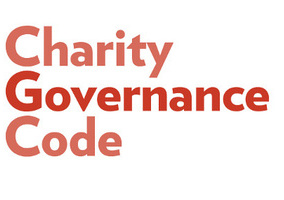Partnering with a charity has generally been seen as a win-win for a business looking to ‘give back’ whilst winning some positive PR and a chance for their staff to get involved. For many years, this has often involved a cheque and relatively low scale involvement – think lots of fence painting.
But increasingly both businesses and charities, encouraged by staff on both sides, are exploring ways for more meaningful collaboration.
Partnerships between charities and businesses can sometimes present an initial challenge often due to a legacy of misunderstanding and misperceptions of each other’s sector, purpose and motivators.
I’ve experienced both sides of this dilemma as the founder of a charity and while working in and on behalf of businesses.
‘Sense that charities are mismanaged’
In the business world, there’s sometimes a sense that charities are mismanaged or chaotically run.
It takes time to help business people understand quite how complex it is to run a charity – you have multiple stakeholders, less clarity on the relationship with your customers and of course, the budget is heavily scrutinised. This results in a wealth of experience and talent in our sector that the business world could learn a lot from.
In fact, the need to make life-or-death decisions in a charity does, in the words of one trustee from a leading bank who we placed at a youth homelessness charity, “sharpen your thinking unlike any experience in the commercial world”.
‘Charities think businesses are too focused on profit’
On the flip side, there’s a perception amongst some in the third sector that business is too focused on its profit and loss to take care of people and affect genuine positive change in society. Once again, the reality can be far different with many businesses making innovative strides to address issues that affect us all, such as the environment or mental health.
There’s increasing fusion between our two sectors through the growth of social enterprise, the B corporations movement and employee owned trusts that will continue to bring us closer together. And there’s an opportunity for charities to benefit from this fusion too, by bringing business skills onto their boards.
‘Untapped opportunity’
That input can transform the way that an organisation approaches its funding model, encouraging charities to think more strategically and prioritise efforts by taking decisions holistically with a longer-term goal in mind.
I think that there is a huge, untapped opportunity here for a more effective skills exchange – and it’s there for the taking. This is the driving thought behind our Step on Board programme, which connects senior business execs with charities in trustee positions.
In my experience, many businesses at first get into this sort of initiative as another way to ‘give back’ but quickly realise, it’s far more valuable than this and that they too often gain just as much, if not more, than the charities they support.
Take the Woodland Trust. We placed a trustee from the organic dairy farm Yeo Valley to support the charity in a financial role. There were plenty of synergies between the charity and the business: both were going through a period of growth and evolution. The trustee became a conduit for best practice and smart thinking between them. Workshops were held between the two organisations and new ideas helped shape the Woodland Trust’s next phase, whilst bringing fresh thinking and ideas back to the business.
‘Two-way street’
The point is: it’s a two-way street. For the charitable sector, I also believe there is a huge opportunity for charities to reach new audiences through the business channel.
For example, we recently placed a senior executive from EY on the board of Rethink where he’s had a major impact, bringing commercial thinking and business acumen to the organisation. But he also brought something really powerful back to EY.
Having gained a more solid understanding of the mental health challenges the charity was set up to support, he advised EY’s internal mental health network. By giving it his expert support and senior sponsorship within the business, he helped drive its profile and engaged more employees.
We are increasingly seeing HR and talent investment departments putting programmes like ours at the heart of their hiring, retention and wellbeing strategies. This is smart business thinking. However, time is of the essence. The next generation is putting more pressure on organisations to think differently whilst also expecting more of their employers. The businesses and charities that embrace this new way of effective collaboration and mutual support can tap into this and will be the ones leading the way in the future.
Sophie Livingstone is managing director of Trustees Unlimited
|
Related content












